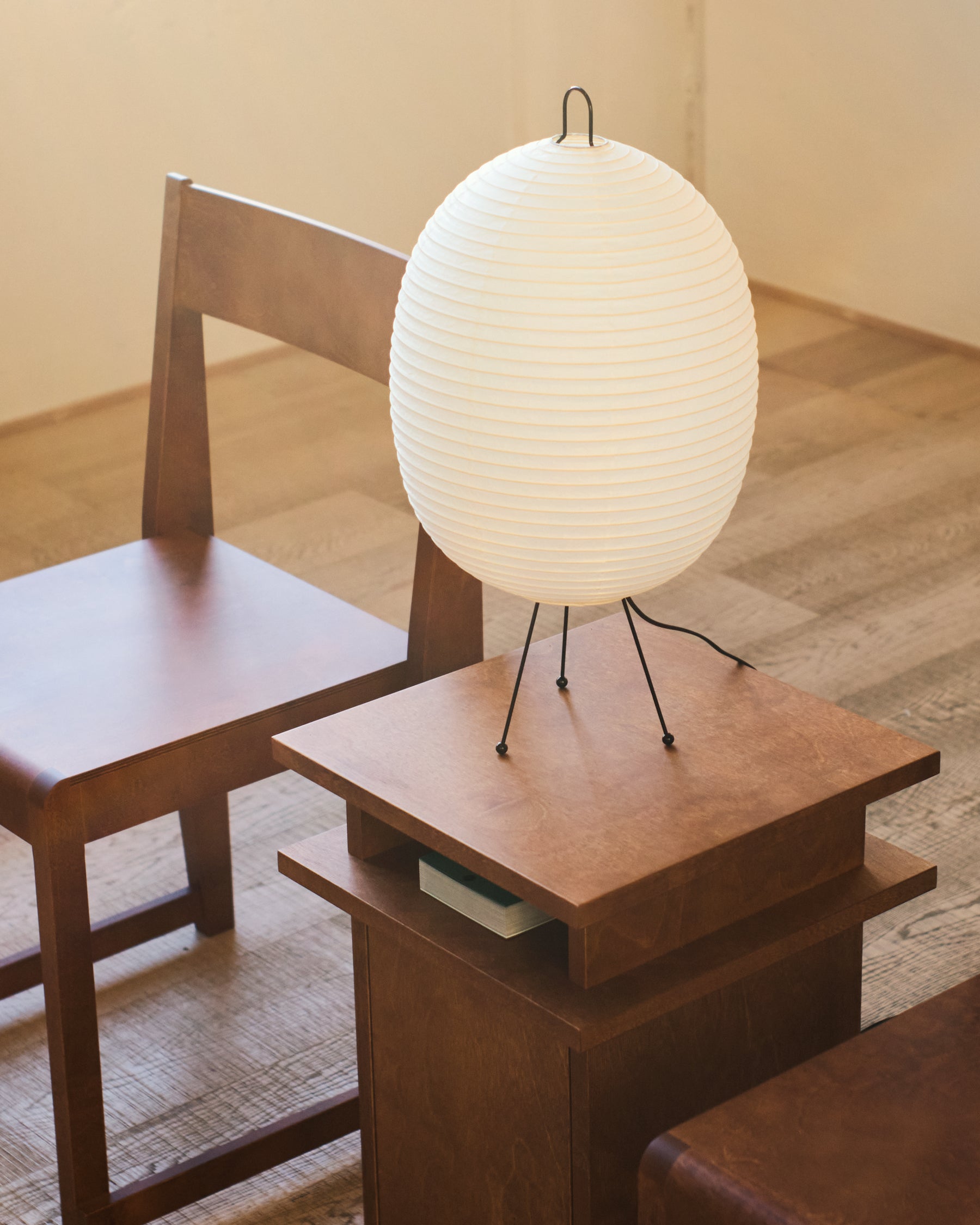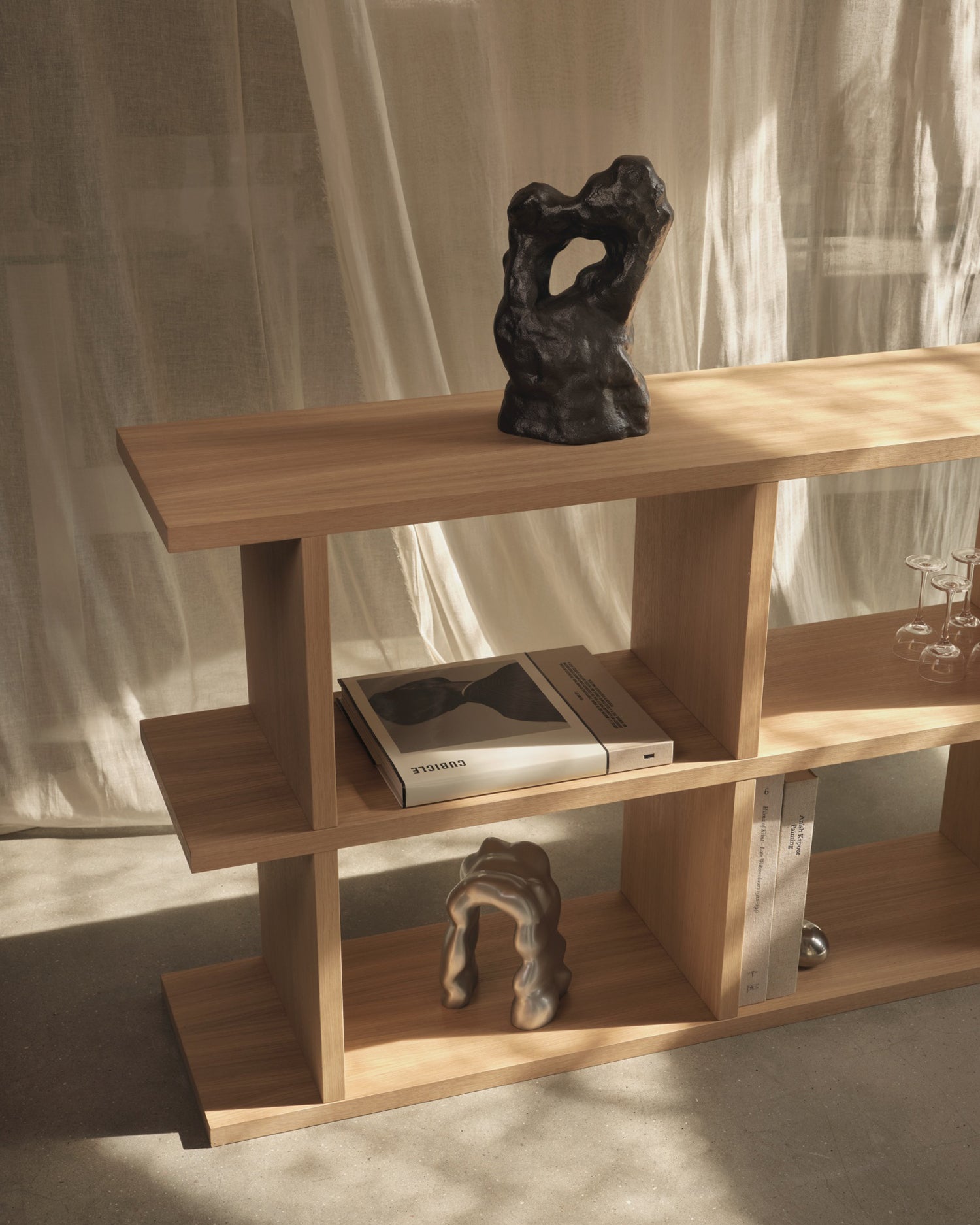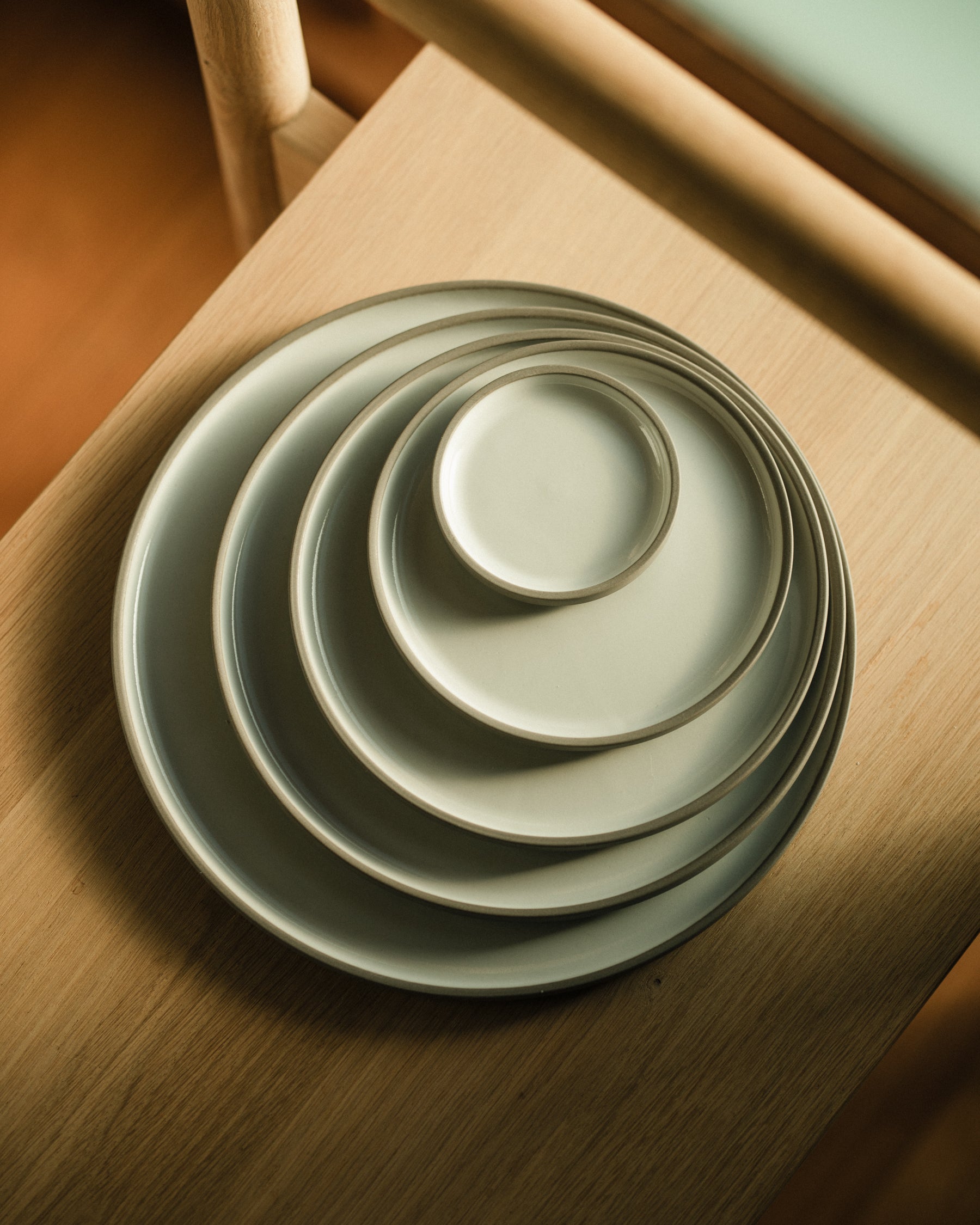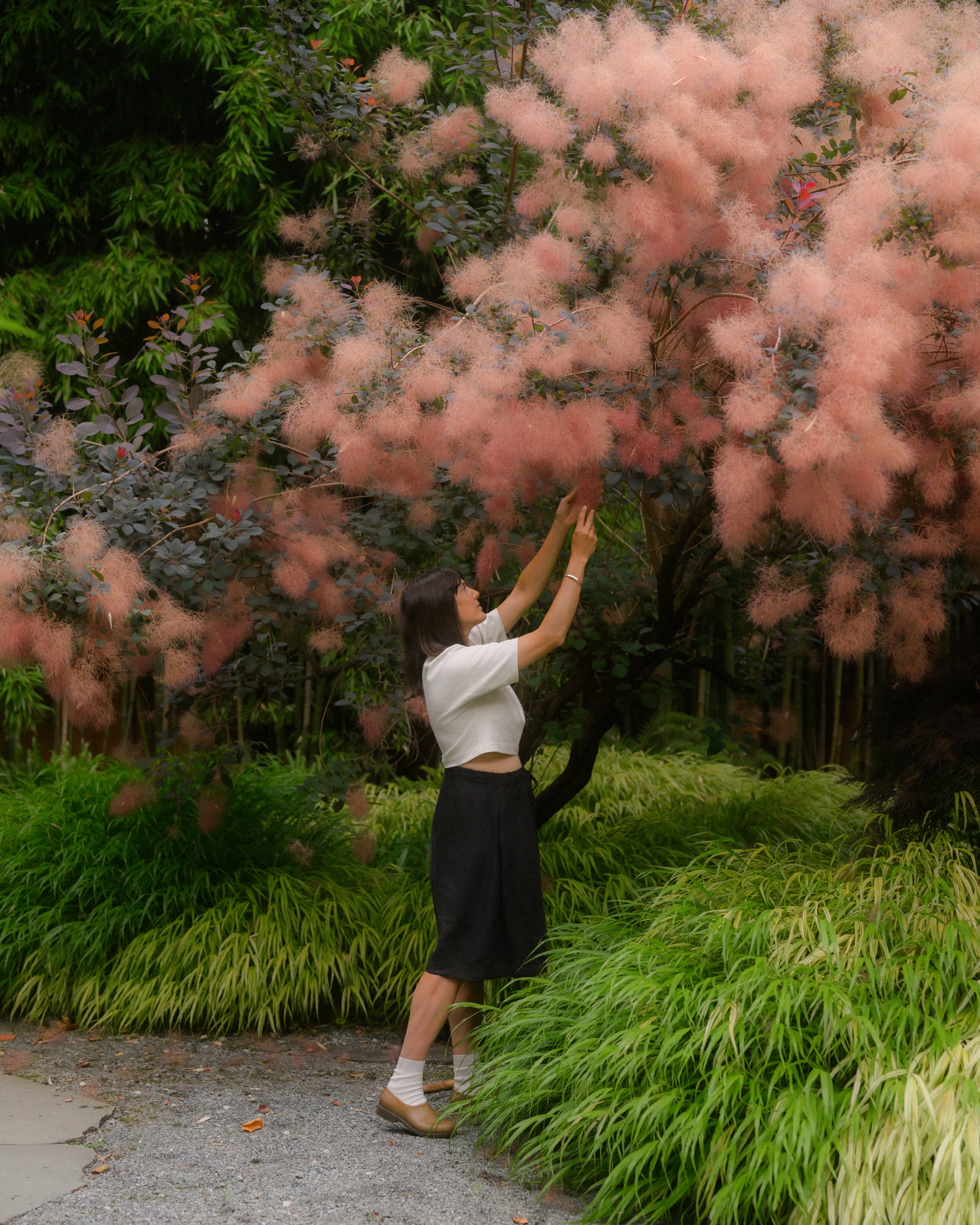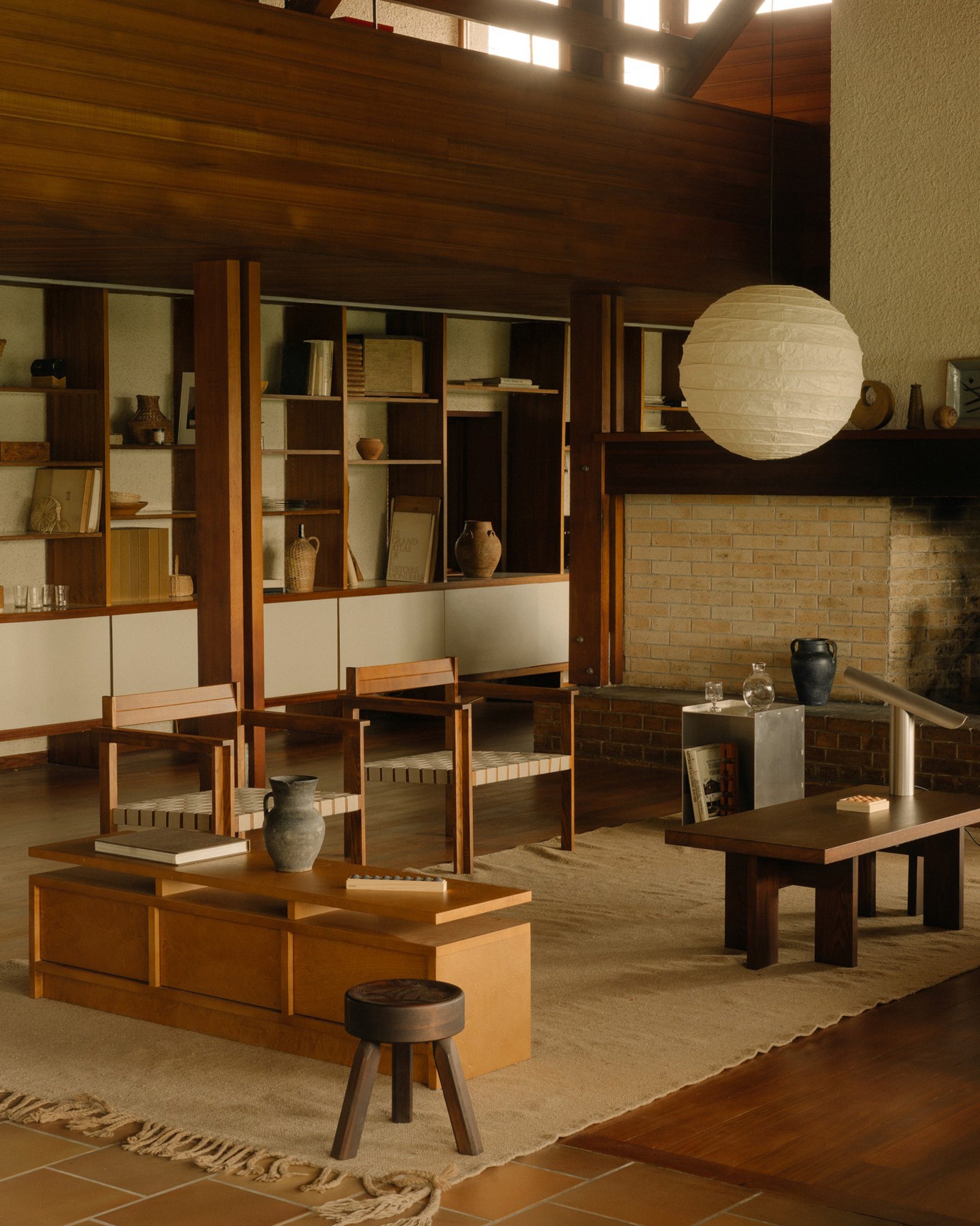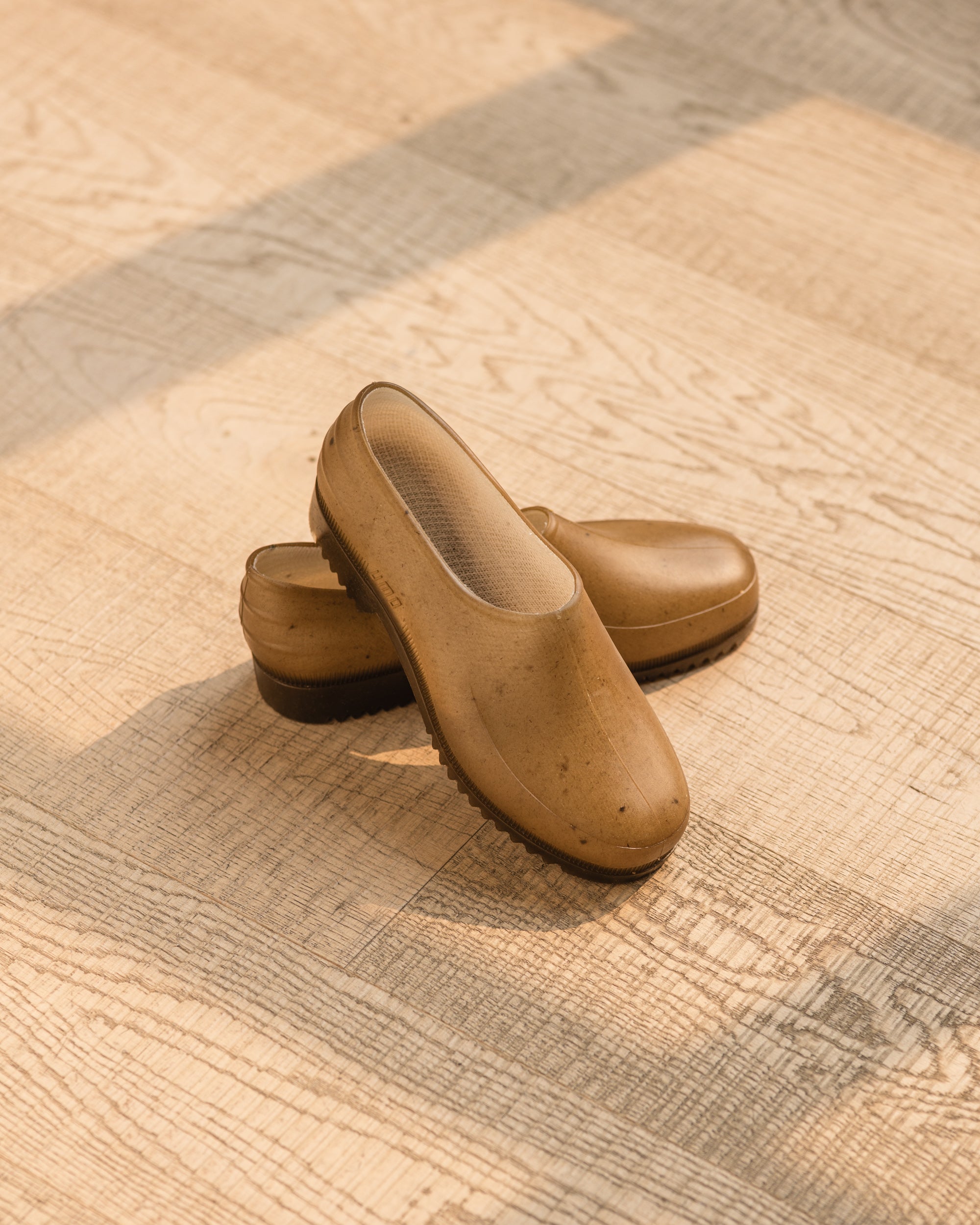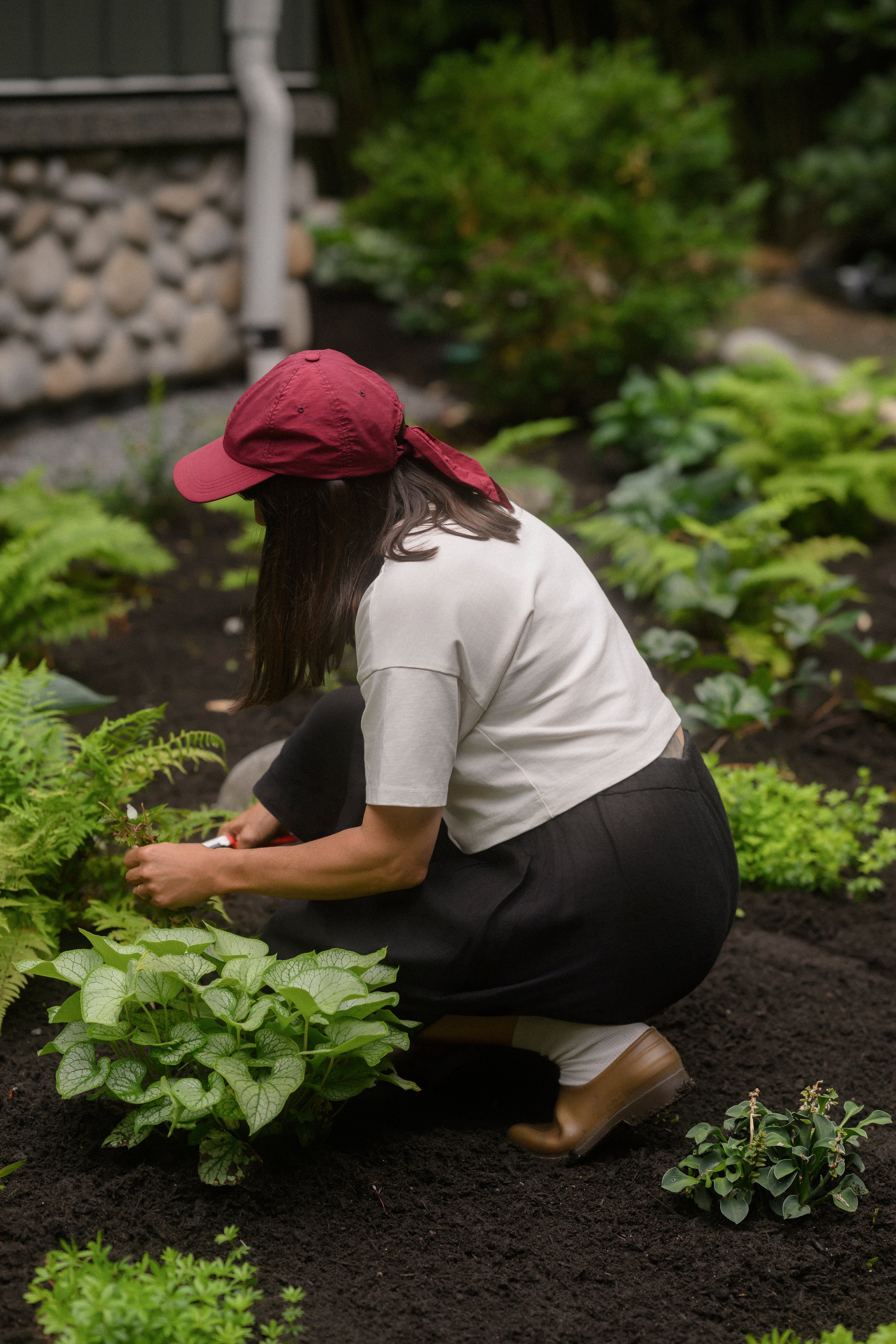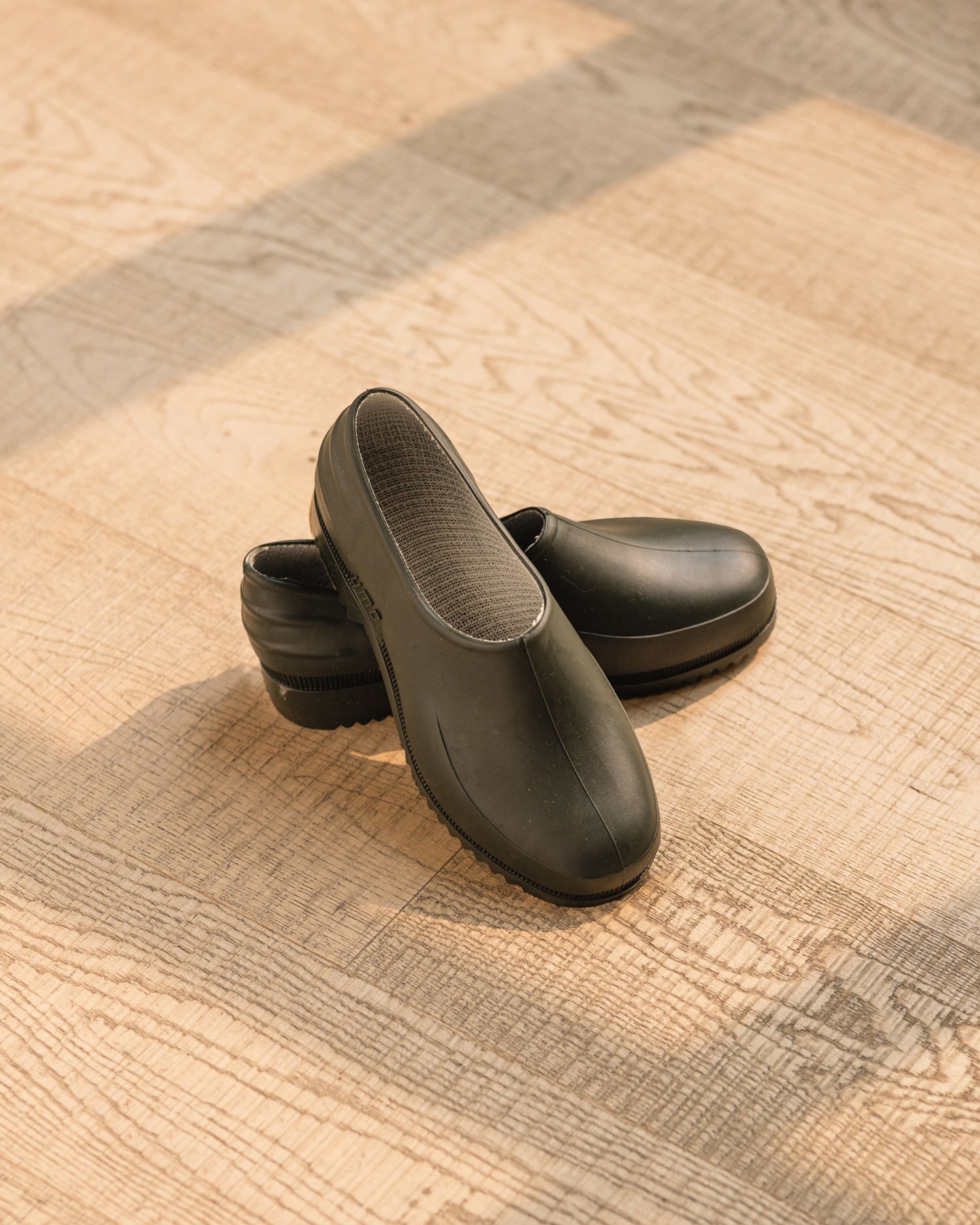

SAM PHILIPS — VICTORY GARDENS
Lessons from the garden, in conversation with Old Faithful Shop
Gardening asks for patience, rhythm, and care: qualities that extend far beyond the soil. For the launch of Plasticana’s hemp gardana clogs, we spent time with Sam Philips of Victory Gardens, photographed by Jennilee Marigomen, to reflect on cycles of growth, community, and the quiet lessons found in tending the land. The conversation touches on resilience, slowness, and design that deepens with age - values that mirror the spirit of Old Faithful Shop.
Gardening requires patience and an eye on the long term - often years before the full reward appears. How has working with the seasons shaped your own perspective on time and progress?
Working with the seasons has profoundly shifted how I relate to time. In the garden, progress isn’t linear—it’s cyclical. You come to understand that what looks like dormancy is often quiet preparation, and that growth doesn’t always happen on the surface. Some seasons are about abundance and harvest, but others are for rest, rebuilding soil, and
letting things lie fallow.
That rhythm has taught me to trust in slow processes and to resist the constant pressure for visible outcomes. It’s also helped me redefine success -not just in terms of yield, but in relationships, resilience, and regeneration. You start seeing the value in small, consistent actions: building healthy soil, nurturing pollinators, saving seeds. These things may not show immediate results, but over years, they create the conditions for a thriving, self-sustaining ecosystem.
So now, when I think about progress, I think about legacy. What am I building that will nourish people and the land not just this season, but ten or twenty years from now? Gardening teaches you to play the long game, to listen more closely to the land, and to honour the pace of nature - not try to outpace it.
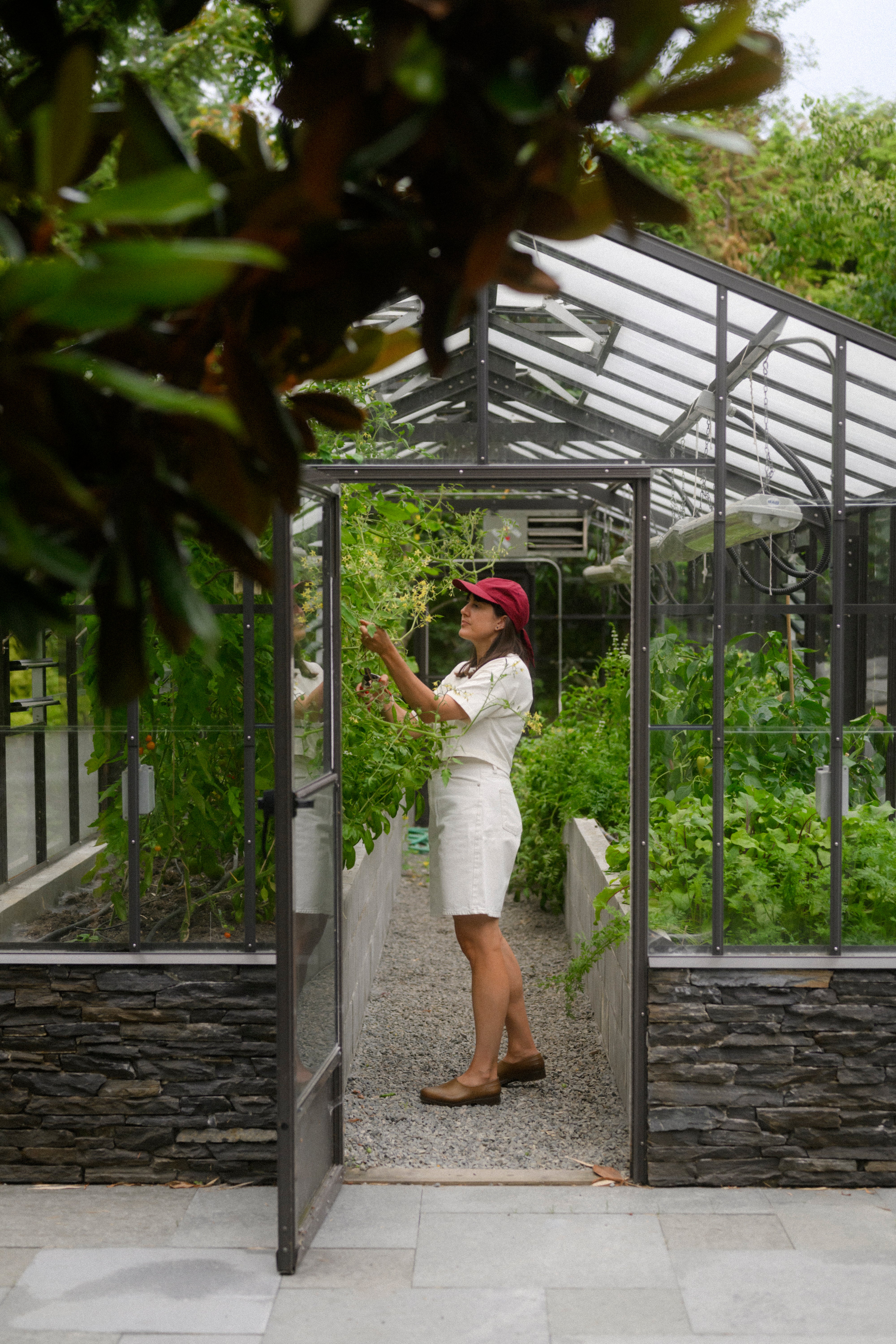
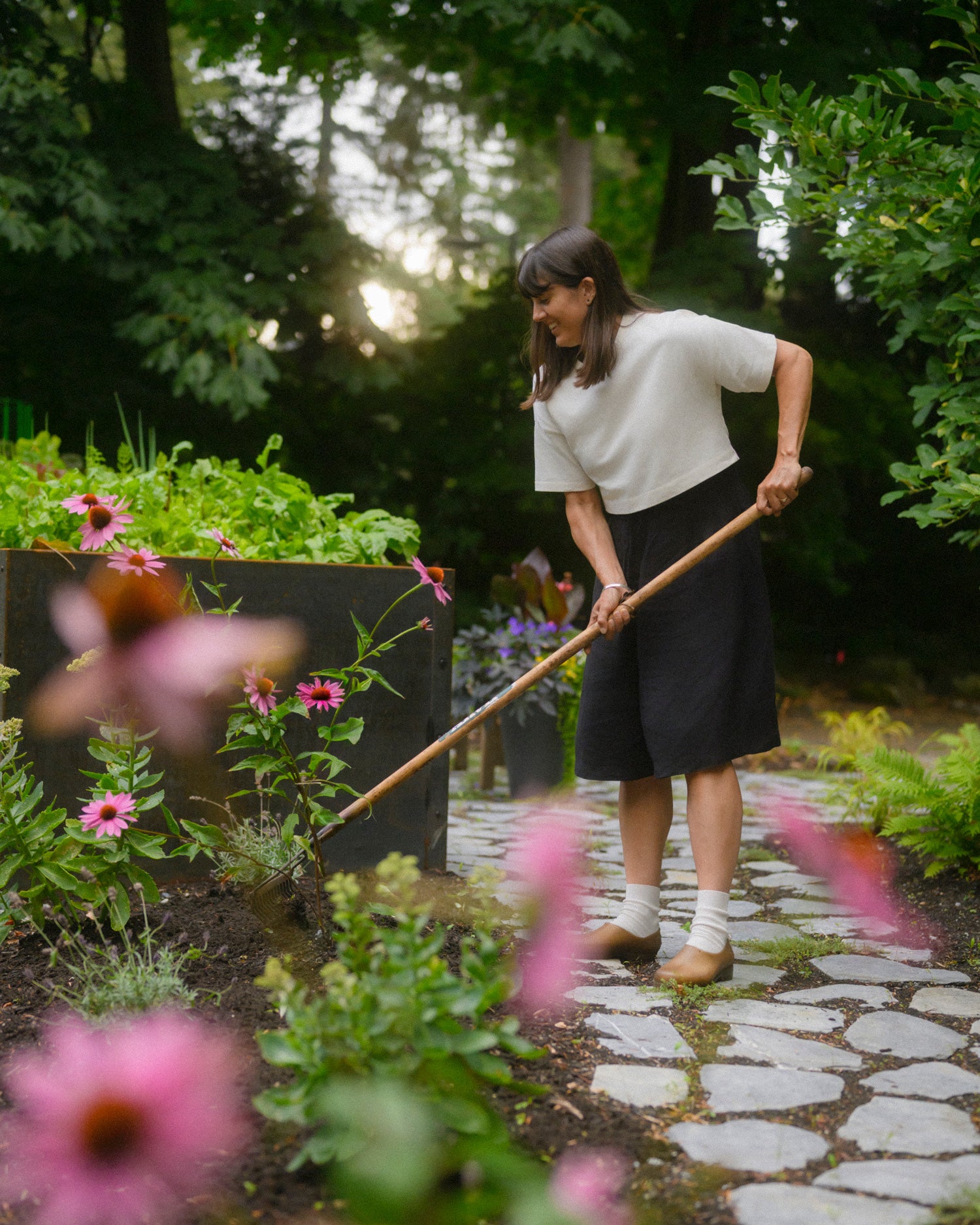
There’s a discipline to tending a garden: the repetition of planting, watering, pruning. How do you find comfort—or discovery—in those recurring rituals?
There’s a quiet kind of grounding that comes from doing the same things, season after season. Planting, watering, pruning: it’s never exactly the same, but the rhythm is familiar. And in that repetition, I’ve found both comfort and clarity.
What I’ve learned is that these so-called “chores” are actually invitations to pay attention. You start to notice small shifts: the way the soil smells different after rain, how a plant’s leaves angle toward the morning light, or how the pollinators return to the same blossoms day after day. These moments might seem small, but they’re full of information - reminders that even routine work can be deeply alive.
There’s also something really honest about showing up for the garden consistently. It doesn’t care about your schedule or your inbox. It asks that you be present, that you listen, and that you respond with care. That’s become a kind of anchor for me - especially in a world that moves fast and demands constant novelty. The garden teaches you that showing up again and again, even in the small ways, is what builds resilience over time.
And strangely enough, it’s often in the most repetitive tasks, like watering or weeding, that I get my clearest thoughts. That mental space opens up and suddenly I’m connecting dots I didn’t know were there. So yeah, the rituals are repetitive, but they’re also where a lot of the magic lives.

______
"Gardening shifts your sense of time. You start to see that not all progress is visible, and not all rewards are immediate. Some seasons are for growing, others are for resting—and both are essential."
______
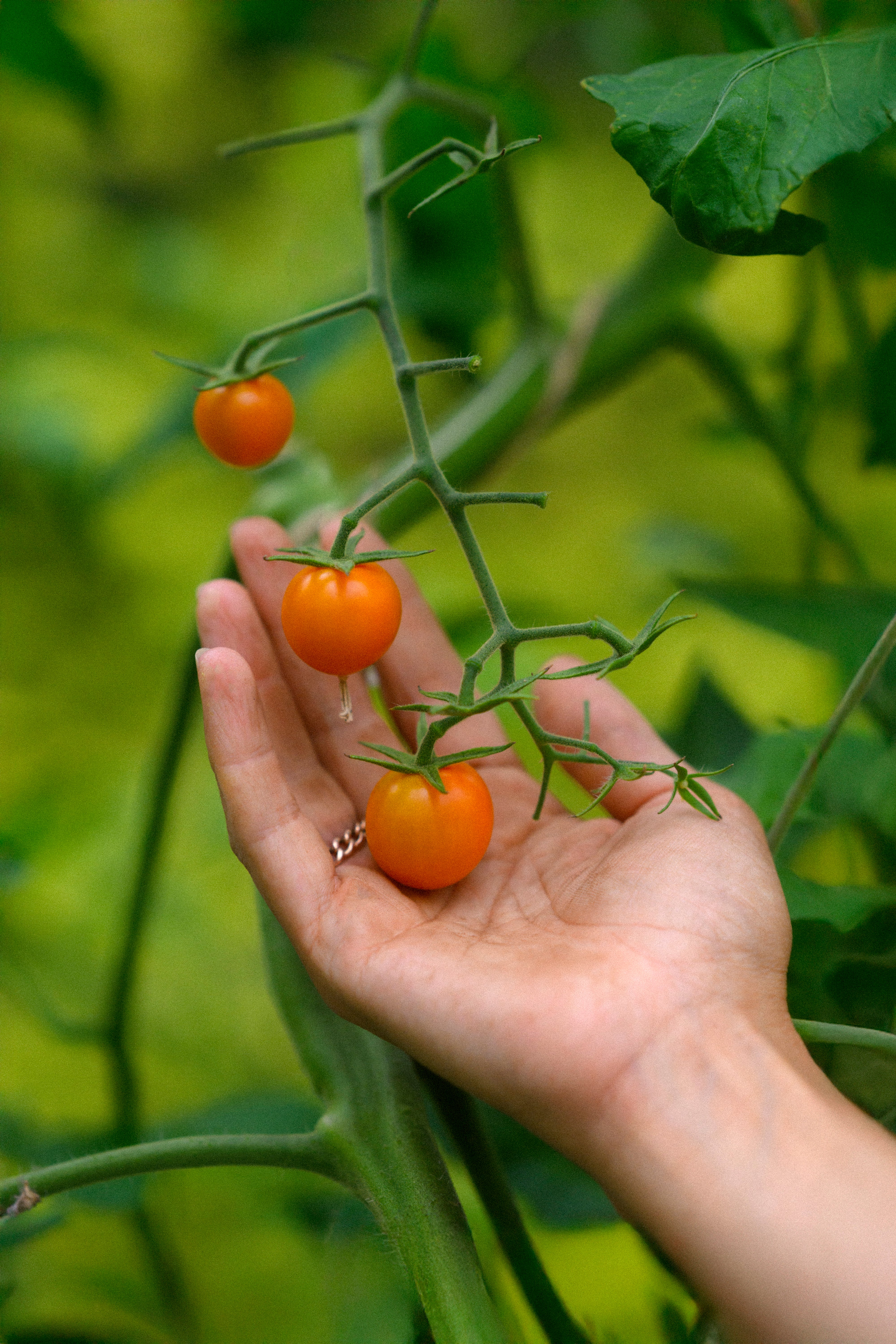
A garden grows slowly, almost imperceptibly. What is it about that slowness that you think resonates with people today, especially in a culture that often wants everything quickly?
I think part of the reason the garden feels so meaningful right now is because it gives us permission to slow down - really slow down - in a world that rarely does. We’re surrounded by constant updates, instant responses, and this underlying pressure to always be producing or improving. But the garden doesn’t operate on that timeline. It takes the time it needs. And you can’t rush it. You just have to show up, care for it, and wait.
There’s something deeply human about that. I think a lot of people are craving that kind of slowness - even if they don’t realize it. Watching something grow from seed to harvest, over weeks or months, reminds us that good things often take time. And not just time - but attention, patience, and care.
What’s beautiful is that the reward is often quiet. It’s not a loud achievement or a flashy win. It’s the first blossom of the season. It’s a kid pulling their first carrot from the soil. It’s a neighbour stopping to admire your kale. These moments might seem small from the outside, but they carry a kind of depth and satisfaction that you don’t get from quick fixes.
So in that way, the garden becomes a counterbalance to the pace of modern life. It shows us another way to be, one that’s slower, yes, but also more connected, more present, and maybe even more joyful.
At Old Faithful Shop, we value objects that grow more meaningful with age and use. Do you see parallels between this philosophy and the way a garden matures?
Definitely. There’s a deep parallel between well-made objects and well-loved gardens - both ask us to invest over time, and both reward that investment in ways that only become clear with age.
A garden isn’t static. It shifts and settles, it deepens. In the early years, things might feel a bit raw or unfinished, but over time, the plants start to find their rhythm, the soil gets richer, and the whole space begins to carry a kind of quiet memory. You start to see the traces of your choices - the good ones and the mistakes - and it all becomes part of the character of the place.
That’s what I love about both gardens and long-lived objects: they tell stories. A path that’s been worn in by years of walking. A trellis that leans just slightly from seasons of wind and weight. These things aren’t flaws—they’re signs of care and time. They give the space soul.
So when I think about good design - objects that age beautifully, that carry meaning because they’ve been used - I see the same values we try to hold in the garden: durability, intention, and a respect for natural change. The garden doesn’t stay pristine, but it does get more alive, more interesting, and more personal the longer you’re in relationship with it. I think that’s something people are really drawn to now—things that don’t just look good, but feel lived-in and loved.
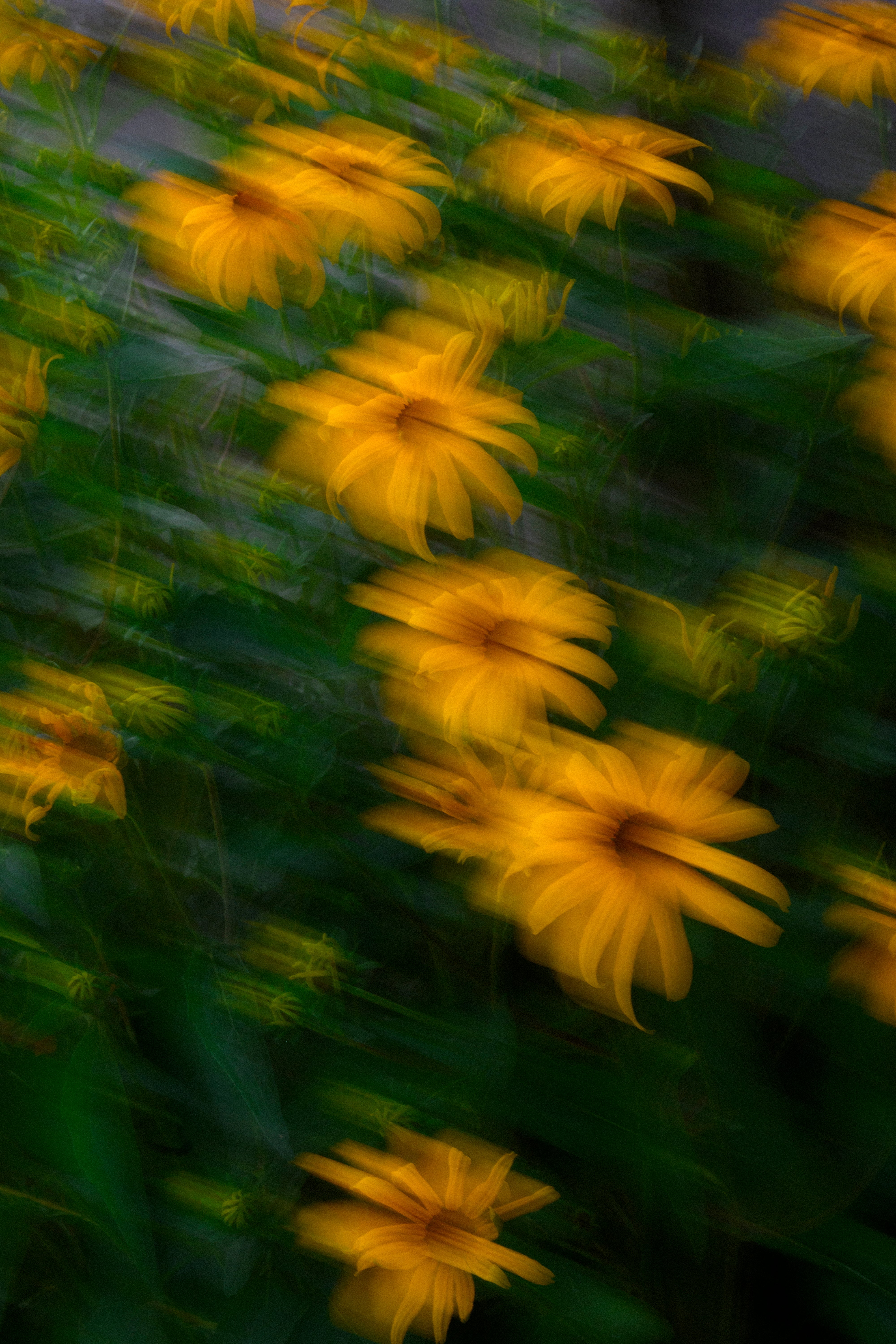

______
"Like a well-loved object, a garden gains character over time. The imperfections, the changes, the wear—they’re part of the story."
______
Victory Gardens works within Vancouver’s urban fabric. How do you see gardens contributing not just to private spaces, but to a broader sense of community and belonging in the city?
Gardens have this quiet power to transform space - not just physically, but socially and even emotionally. In a city like Vancouver, where people often feel disconnected or isolated, a small garden can become a point of connection. It invites people to slow down, to notice, to engage.
What I love about working in urban spaces is seeing how gardens start to ripple outward. Someone might begin by growing food in their own yard or on their balcony, and before long, they’re swapping seeds with a neighbour or helping someone down the block troubleshoot their tomatoes. That kind of sharing - knowledge, harvests, even just stories - builds relationships that wouldn’t have happened otherwise.
We’ve also seen how public or semi-public gardens become gathering points. A boulevard planting or a front-yard veggie patch can change the whole feeling of a street. Suddenly there’s something alive and dynamic there - something that signals care. And that sense of care is contagious. It makes the city feel more human.
So much of our urban infrastructure is built for speed and separation. Gardens do the opposite - they root us in place and remind us we belong to something larger than ourselves. They offer common ground, literally and figuratively. And in a city as diverse and fast-moving as Vancouver, I think that’s incredibly valuable: spaces that aren’t just functional, but meaningful. Spaces that help us feel at home.
If you had to describe the essence of gardening in one lesson for life, something beyond the soil and the plants, what would it be?
For me, the heart of gardening is about learning to live in relationship - with land, with time, with uncertainty. You can’t control a garden, not really. You can guide it, support it, pay attention - but you’re always working with forces beyond yourself: weather, seasons, soil, the lives of other beings.
And that teaches you humility. It teaches you to let go of perfection and to find beauty in the process instead of just the outcome. Some years you’ll have a bumper crop, and some years things will fail - and both are part of the same story. The garden keeps going, and so do you.
So if there’s one lesson I carry into the rest of life, it’s this: growth takes time, and care, and patience - but it also requires trust. Trust that even when things look still, there’s movement happening underneath. That cycles matter more than straight lines. That tending something, whether it’s a garden, a relationship, or a community, isn’t about quick wins, but about showing up with consistency and care over the long term. That’s where the richness comes from. That’s where the meaning grows.

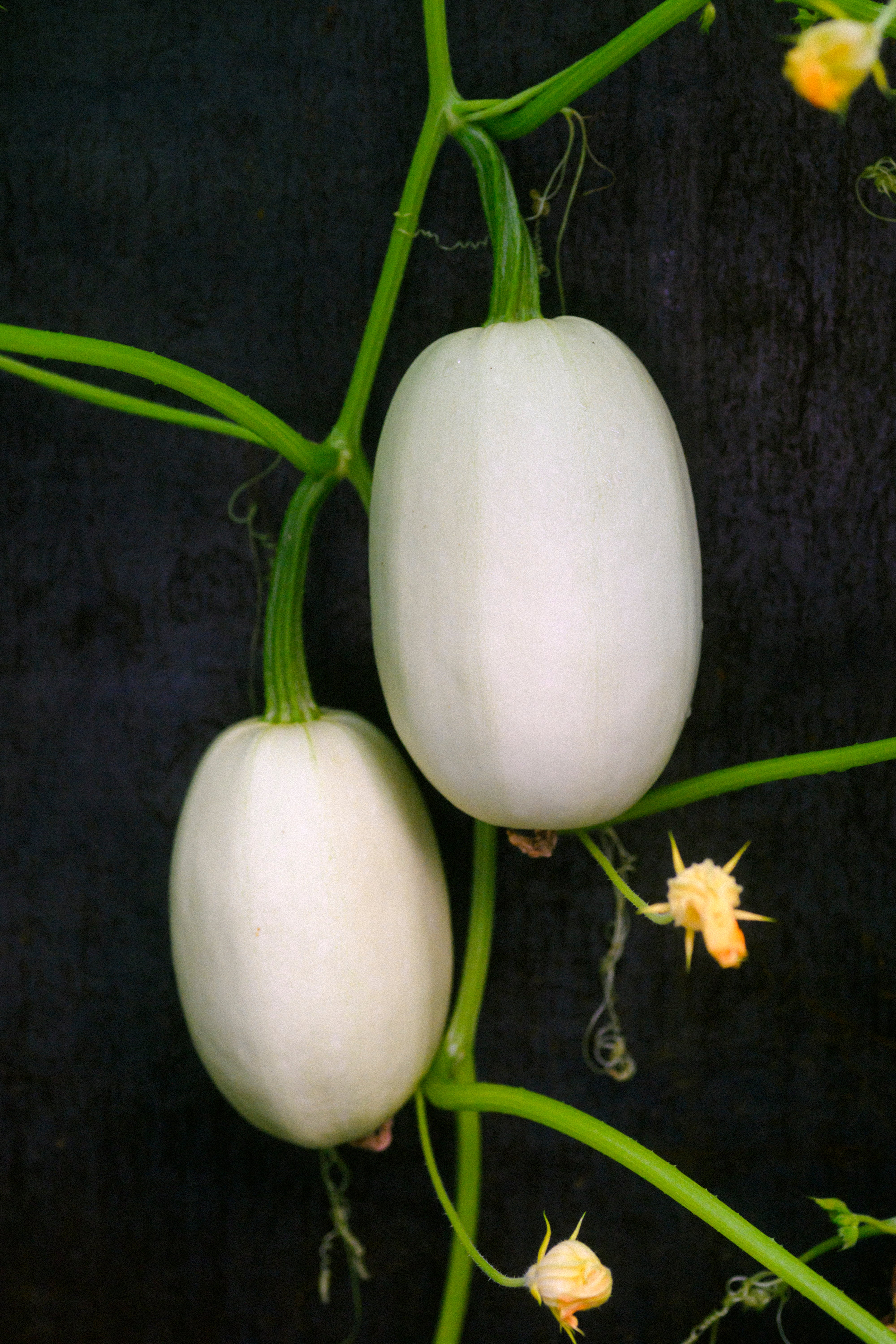
Victory Gardens is a Vancouver-based collective dedicated to helping people cultivate food in urban spaces through thoughtful design, education, and community support. Learn more at Victory Gardens. Photography for this feature was captured by Jennilee Marigomen.

